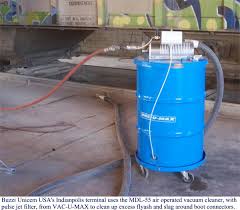
Environmental protection organizations and agencies are increasingly proposing at a more frequent rate new regulations that are often based on the findings of the Environmental Protection Agency, also known as the EPA. The EPA has a devised and structured set of mandatory rules and regulations, known as the Control Techniques Guidelines, or CTG, which specifically cites what is right and wrong when using Industrial cleaning solvents. The intention of CTG is to comprehensively cover all industrial cleaning operations that are not already regulated by other sources or set of guidelines.
As it pertains to the category of industrial cleaning solvents, the CTG included a variety of industrial products that are used to remove contaminants, such as adhesives, inks, paint, soil, oil, and grease. In the newly set proposed regulations, compliant solvents must completely satisfy one or both of the following Volatile Organic Compound (VOC) limits:
- A Volatile Organic Compound content must be less than or equal to fifty grams of VOC per liter (gram of VOC per liter) (0.42 pounds of VOC per gallon (pond of VOC per gal)) of cleaning solvent material.
- A VOC composite vapor pressure has to be equal to or less than eight millimeters of mercury, at sixty-eight degrees Fahrenheit, or twenty degrees Celsius.
- If your industrial organization generates less than fifteen pounds of VOC per day from industrial cleaning unit operations, then it can still use non-compliant solvents, as long as your industrial operations maintain all of the required records proving the fact.
Industrial facilities that are generating fifteen pounds of VOC per day or more from industrial cleaning unit operations are required to use mandated and compliant coatings, or otherwise install an add-on air pollution control device.














